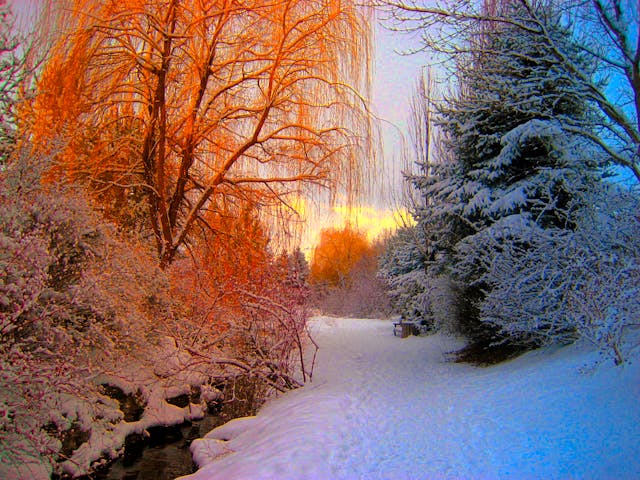Call Today to Schedule an Appointment: 212-319-5282
Seasonal Allergies in NYC: Triggers, Symptoms, and Treatment
Seasonal allergies in NYC can be especially troublesome due to the city’s dense urban landscape, fluctuating pollen levels, and year-round exposure to environmental irritants. As spring and fall bring changes in temperature and blooming vegetation, thousands of New Yorkers experience sneezing, itchy eyes, congestion, and fatigue — all classic signs of allergic rhinitis.
Understanding the common triggers, symptoms, and treatment options is the first step toward managing seasonal allergies and reclaiming comfort in your daily life.

Common Seasonal Allergy Triggers in New York City
New York’s seasons bring a predictable pattern of allergens, but the severity and timing can vary depending on weather and air quality. Common triggers include:
- Tree Pollen (Spring): Maple, oak, birch, and elm trees release high levels of pollen between March and May.
- Grass Pollen (Late Spring to Summer): Grasses such as Timothy, Bermuda, and Kentucky bluegrass peak from May to July.
- Weed Pollen (Late Summer to Fall): Ragweed is the most notorious fall allergen, beginning in August and continuing through October.
- Mold Spores: Humid conditions, particularly in subways and parks, foster mold growth year-round, but it peaks in the fall.
- Air Pollution: Smog, exhaust, and particulate matter can worsen allergy symptoms or mimic them, especially in warm months.
Typical Symptoms of Seasonal Allergies
Seasonal allergy symptoms can range from mild to severe and often mimic the common cold. Common signs include:
- Sneezing and nasal congestion
- Runny nose or postnasal drip
- Itchy, watery, or red eyes
- Coughing or wheezing
- Fatigue or brain fog due to disrupted sleep
- Itchy throat or ears
These symptoms can significantly impact productivity, mood, and quality of life — especially when left untreated.
Diagnosing Seasonal Allergies
If you’re unsure whether your symptoms are allergy-related, a visit to a board-certified allergist is the best next step. A personalized evaluation may include:
- Skin Prick Testing: To identify which pollens or molds trigger your symptoms.
- IgE Blood Testing: Useful when skin testing isn’t an option, such as in patients with severe eczema or those on antihistamines.
Understanding exactly what you’re allergic to allows for targeted treatment — rather than guesswork with over-the-counter medications.
Treatment Options for Seasonal Allergies
Modern allergy care goes far beyond antihistamines. Depending on your severity, your allergist may recommend:
- Daily Medications: Includes oral antihistamines, nasal corticosteroids, and decongestants for short-term relief.
- Allergy Eye Drops: Target red, itchy, or watery eyes caused by pollen exposure.
- Allergen Avoidance Strategies: Includes closing windows, using air purifiers, and showering after outdoor exposure.
- Immunotherapy: Allergy shots or sublingual tablets gradually retrain your immune system to reduce long-term sensitivity.
With expert care, many patients experience dramatic symptom relief and even outgrow their allergies over time.
Managing Seasonal Allergies in the City
Living in New York means navigating allergens in parks, transit systems, office buildings, and apartments. Smart habits can minimize flare-ups:
- Track daily pollen counts using online tools and apps.
- Wear sunglasses outdoors to block pollen from your eyes.
- Change clothes and wash hands after being outside.
- Use HEPA filters in your bedroom and avoid carpets.
- Schedule regular cleanings for HVAC systems and window units.
Your allergist can help you develop a customized allergy management plan based on your lifestyle and environmental exposures.
Find Expert Help for Seasonal Allergies in NYC
If you’re tired of struggling with seasonal allergies in NYC, expert diagnosis and care are just a phone call away. Schedule a consultation with Dr. Boyan Hadjiev, also known as “Dr. Sneeze,” and take the first step toward breathing easier year-round.
Allergy, Asthma and Sinusitis P.C
Boyan Hadjiev, MD
30 East 40th Street
Suite 1200
New York, NY 10016
212-319-5282
Serving all of New York City and the Tri State Area including Zip Codes: Top Allergist NYC Midtown, Chelsea and Clinton: 10001, 10011, 10018, 10019, 10020, 10036 | Gramercy Park and Murray Hill: 10010, 10016, 10017, 10022 | Greenwich Village and Soho: 10012, 10013, 10014 | Lower Manhattan: 10004, 10005, 10006, 10007, 10038, 10280 | Lower East Side: 10002, 10003, 10009 | Upper East Side: 10021, 10028, 10044, 10128 | Upper West Side: 10023, 10024, 10025
